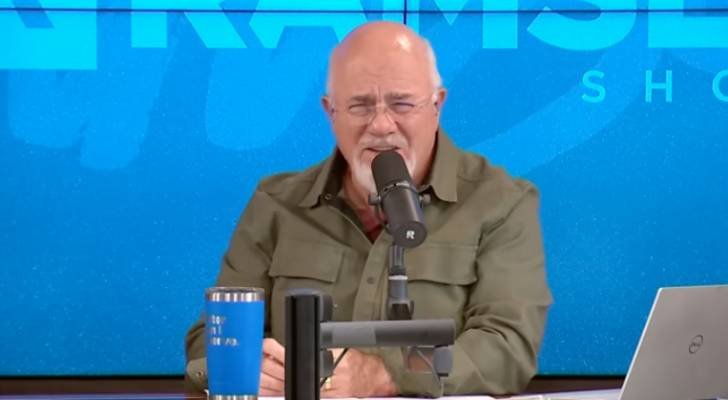Moneywise and Yahoo Finance LLC may earn commission or revenue through links in the content below.
If you’re in debt, you’re not alone. Experian reports that the average U.S. consumer pays $1,237 in monthly debt across their various obligations (1).
Meanwhile, median weekly earnings for American workers were $1,196 during the second quarter of 2025, per the U.S. Bureau of Labor Statistics (2). That’s an annual salary of $62,192, assuming 52 weeks of work. And when we divide that by 12, it’s a monthly income of about $5,183.
This means the typical American could be spending about a quarter of their monthly income on debt payments alone. But while digging yourself out of debt may be hard when you earn a typical wage, the task should be a lot easier when you have a large salary.
That’s why Dave Ramsey was appalled when a caller with a six-figure career recently asked if he should take out a 401(k) loan to pay off his roughly $33,000 in debt (3).
Dave, from New York, explained that his household income is $205,000. Ramsey felt that he was making more than enough to rid himself of debt in under a year, given the relatively small amount owed.
“Dude, why don’t you just get on a budget?” Ramsey said. “Clean this mess up. Quit trying to find a hack.”
After all, the first step to paying down debt is to develop a strategy grounded in pinching pennies to pay things off.
Generally speaking, there are two ways to do this: the avalanche method and the snowball method. The avalanche focuses on paying down the biggest debt first, then knocking off the smaller ones. Meanwhile, the snowball technique aims to build momentum by paying off smaller debts one after the other.
But when dealing with debt, the first step is figuring out how much you can contribute towards your principal plus interest each month.
Fortunately, figuring out a budget can be easier than ever with Rocket Money.
The app tracks and categorizes your expenses, providing a clear view of your cash, credit and investments in one place. It can even uncover forgotten subscriptions, helping you cut unnecessary costs and save potentially hundreds annually. This could fee up money to help pay down debts like Dave’s.



